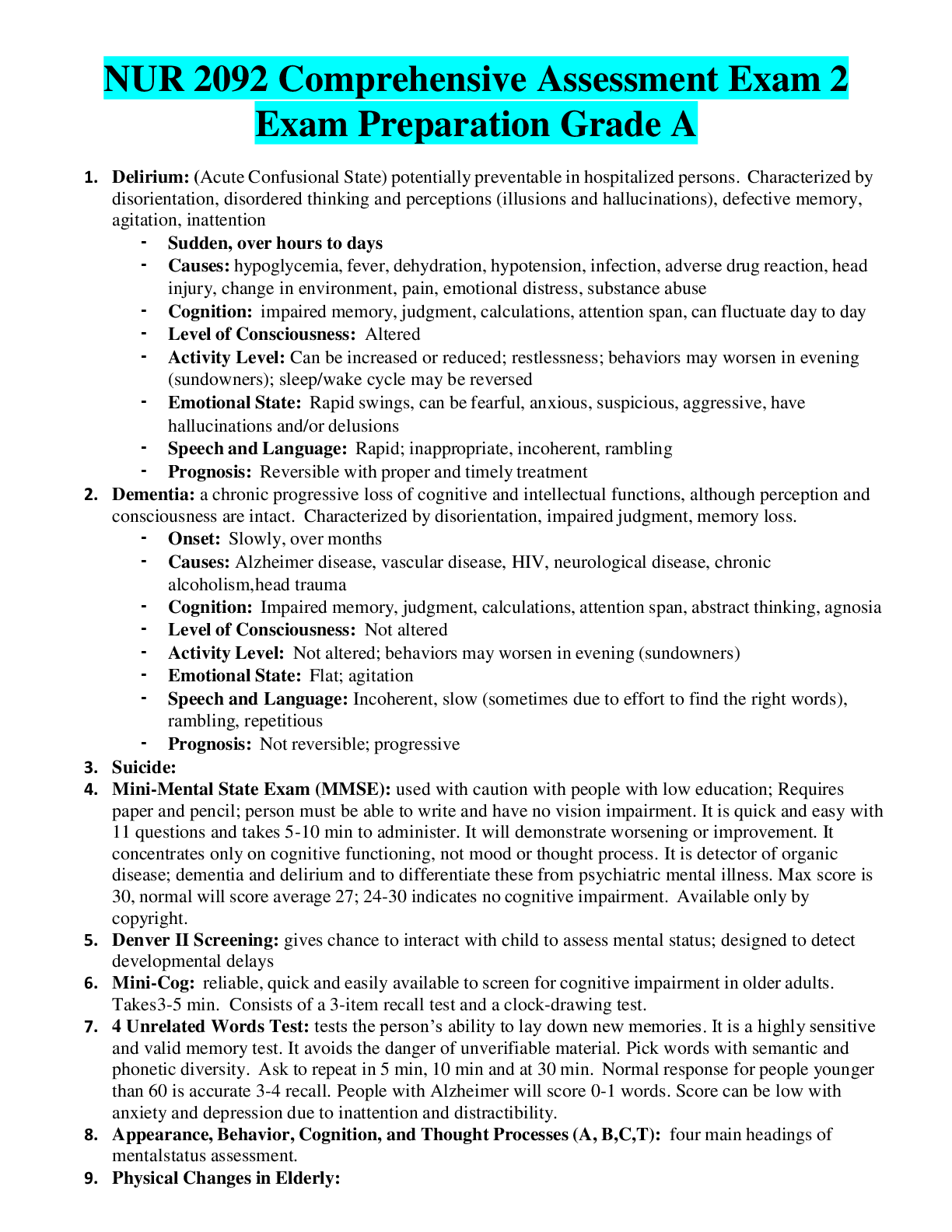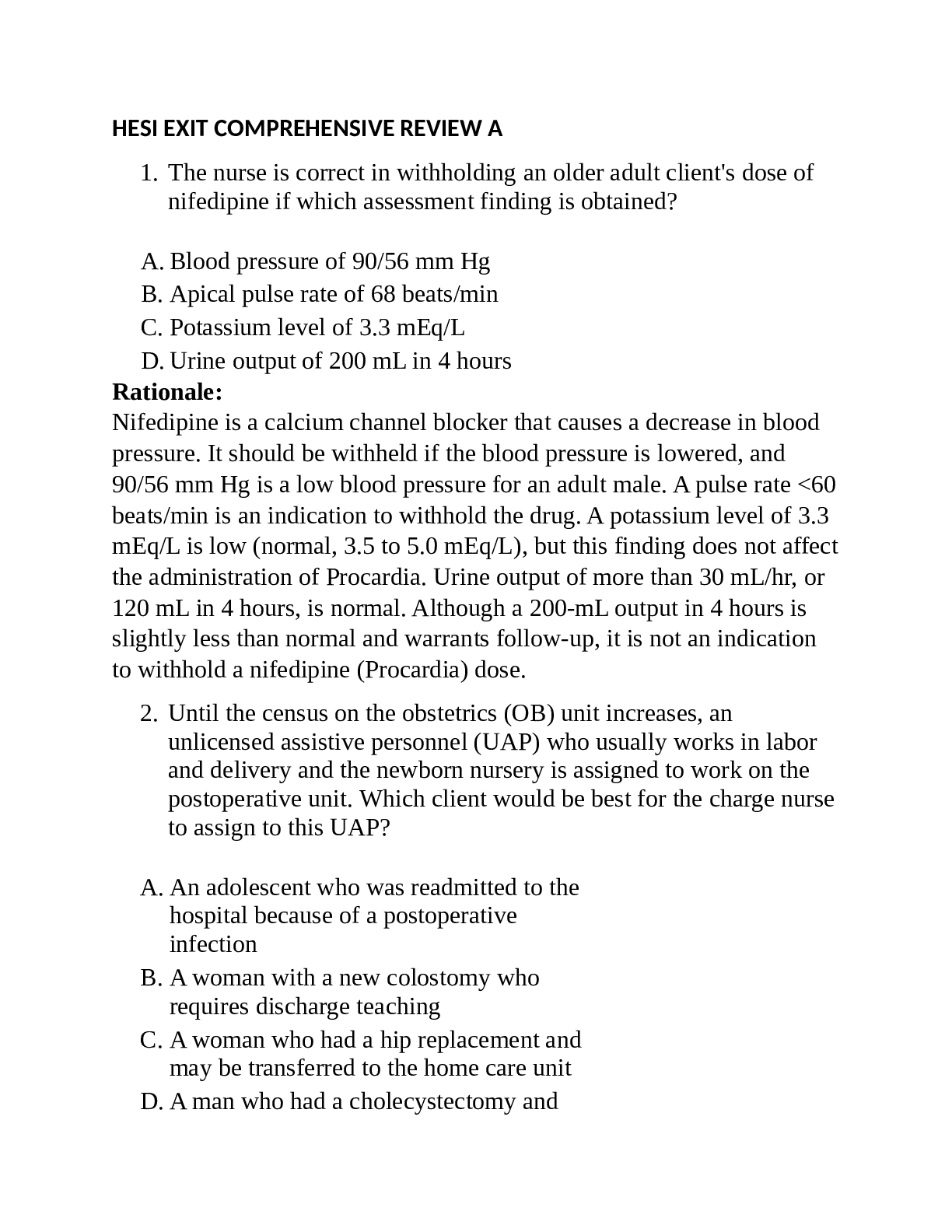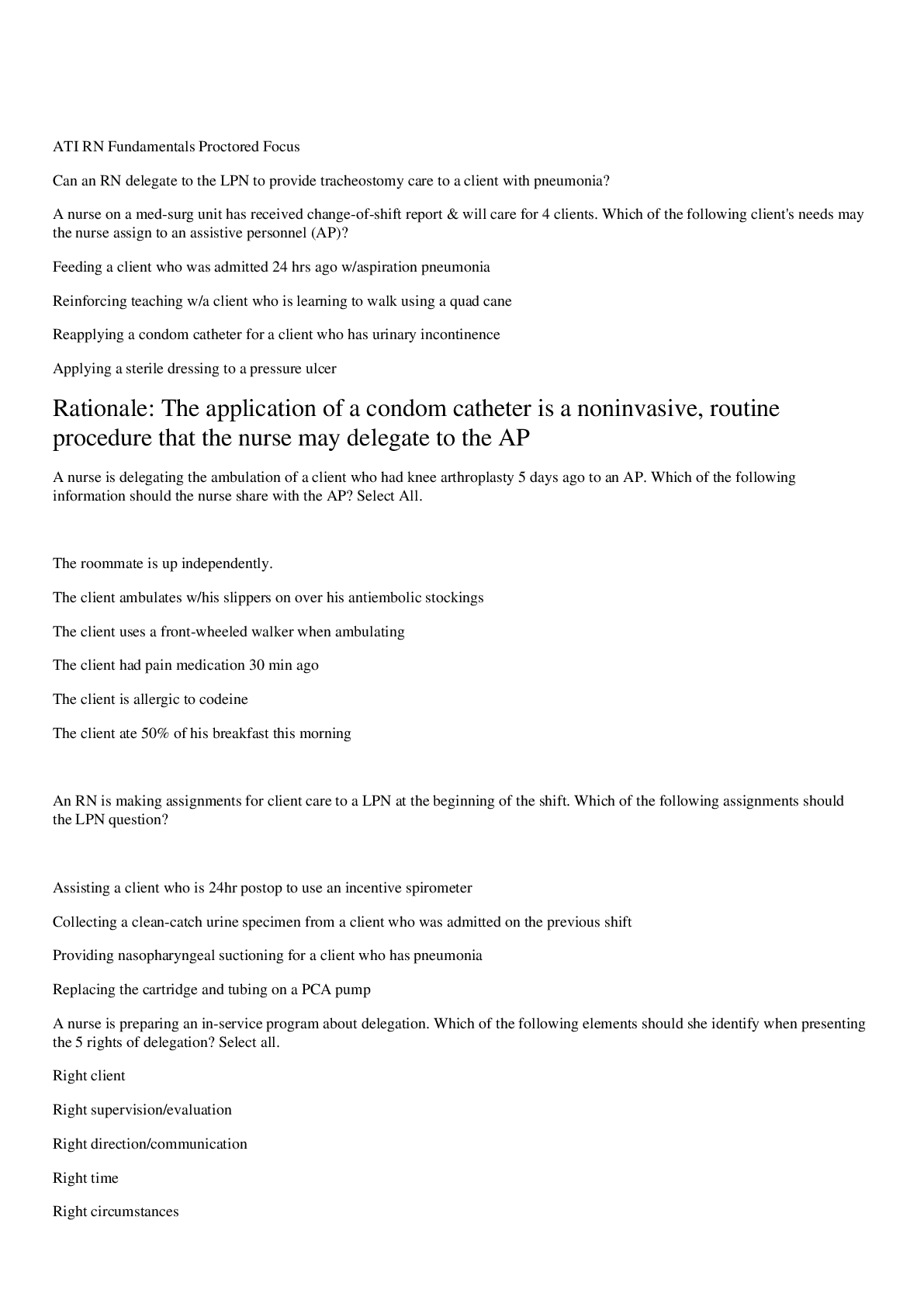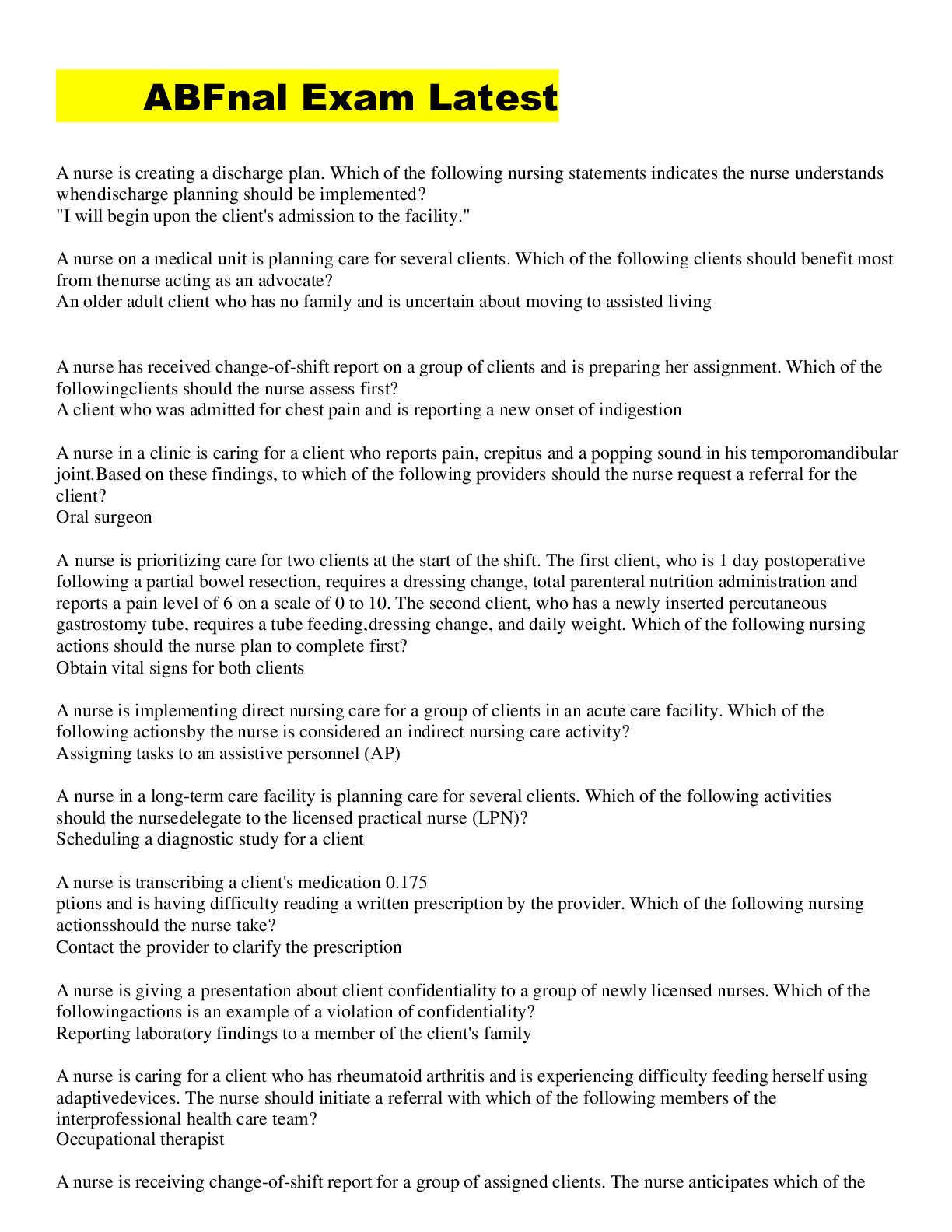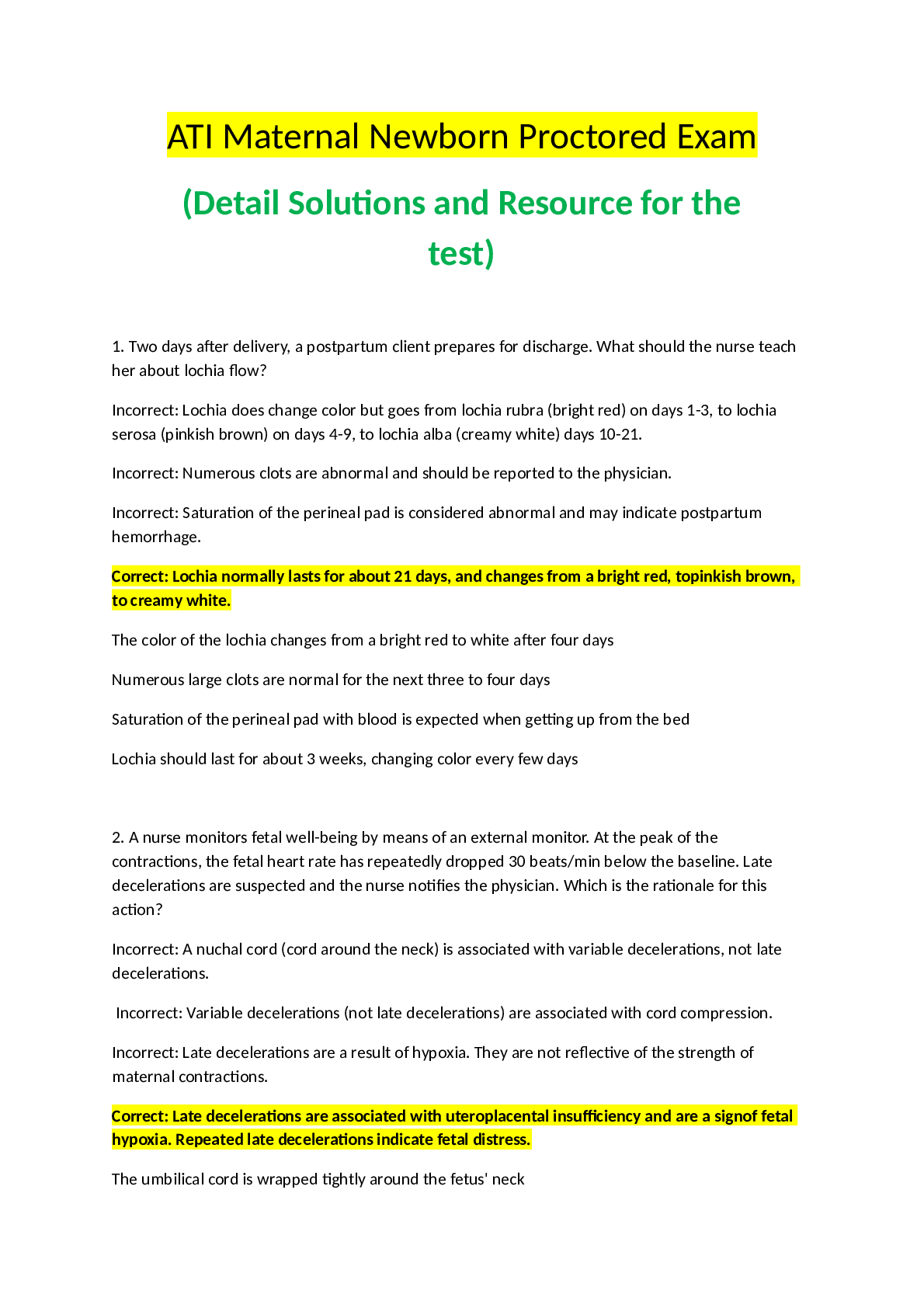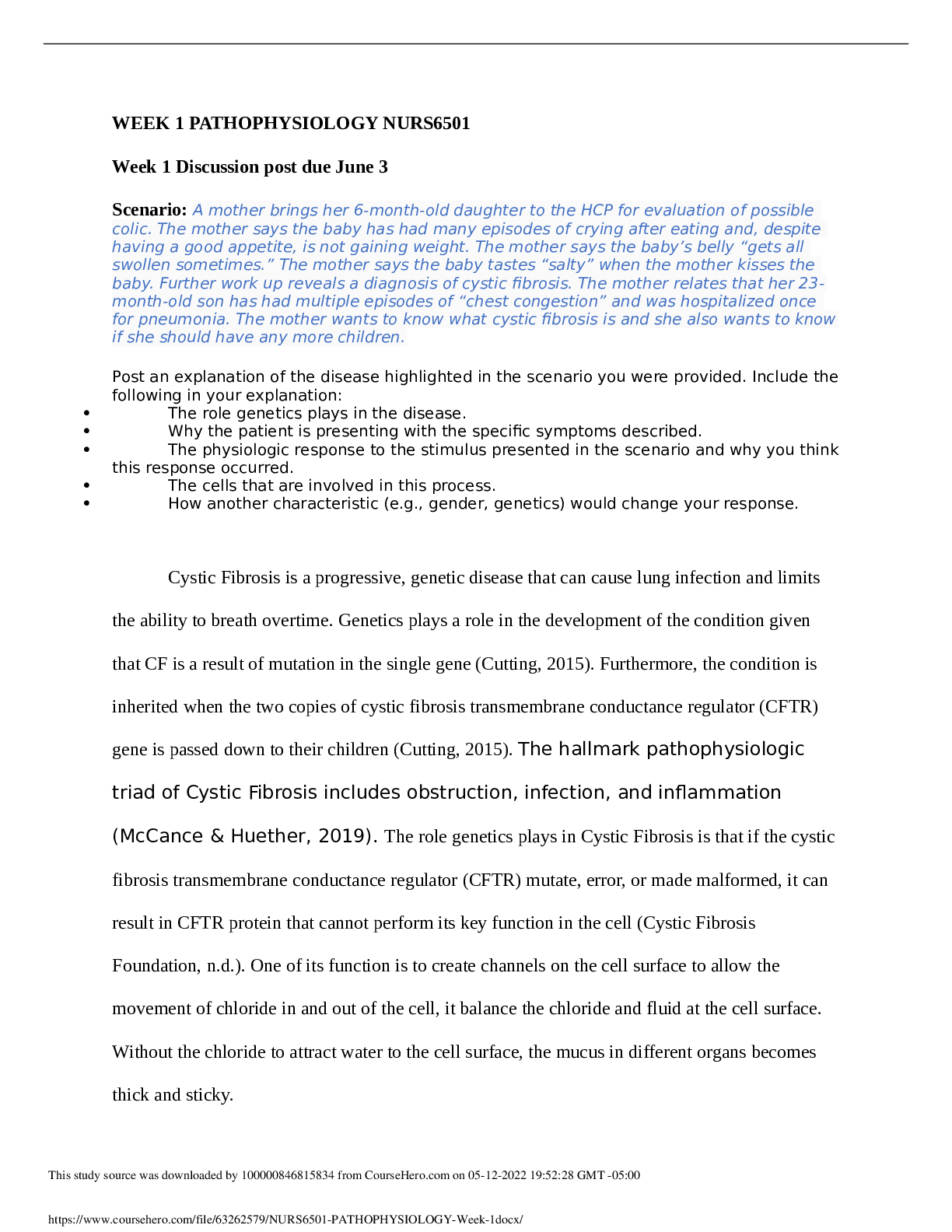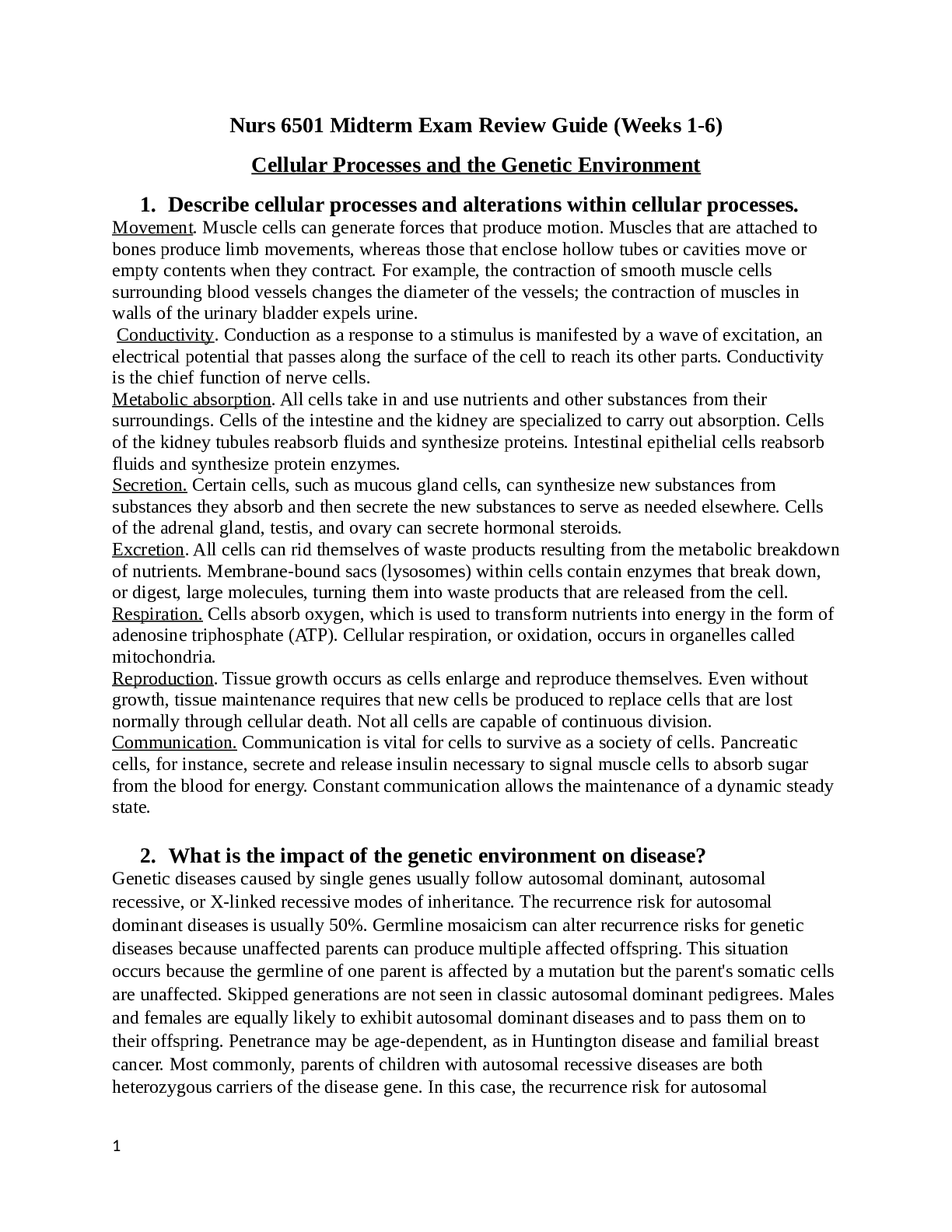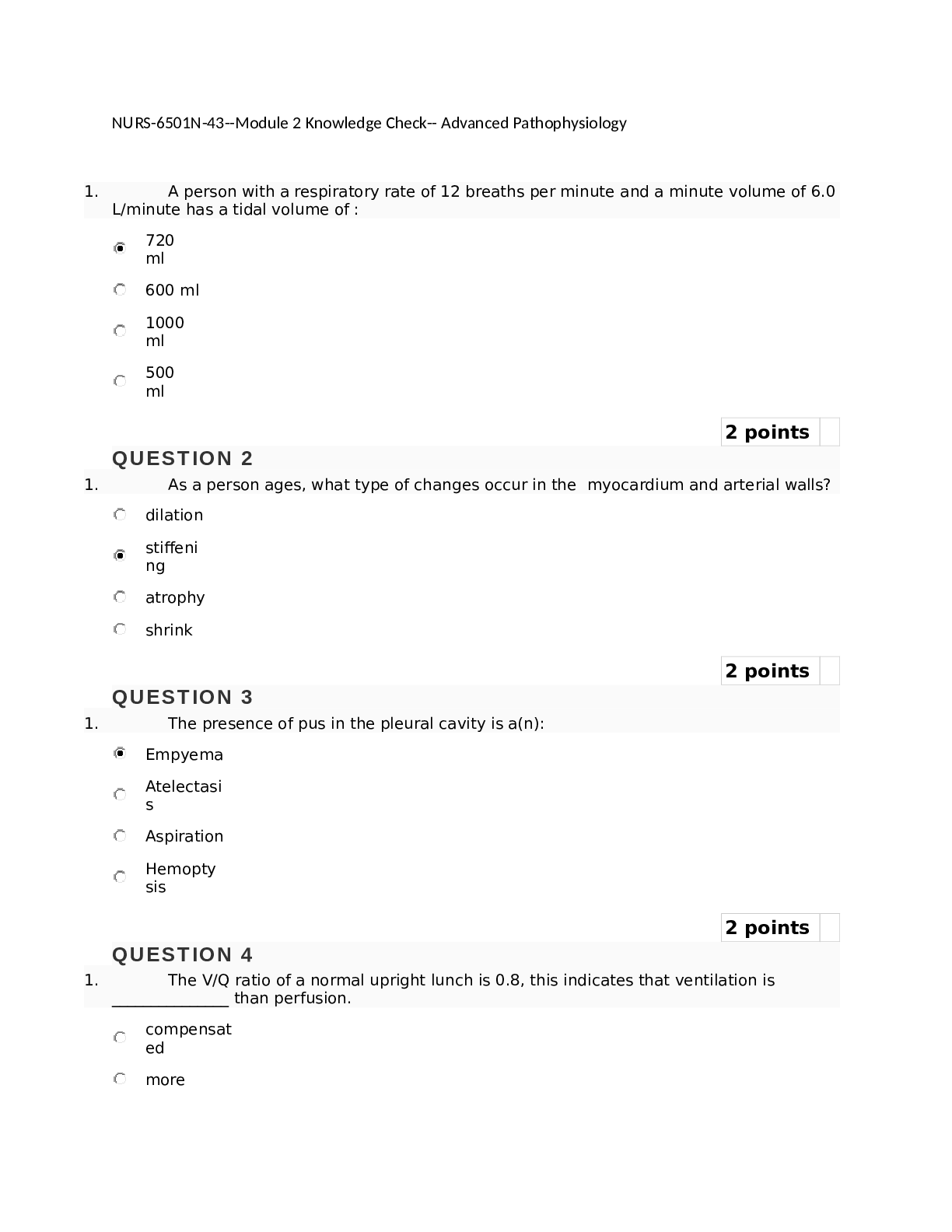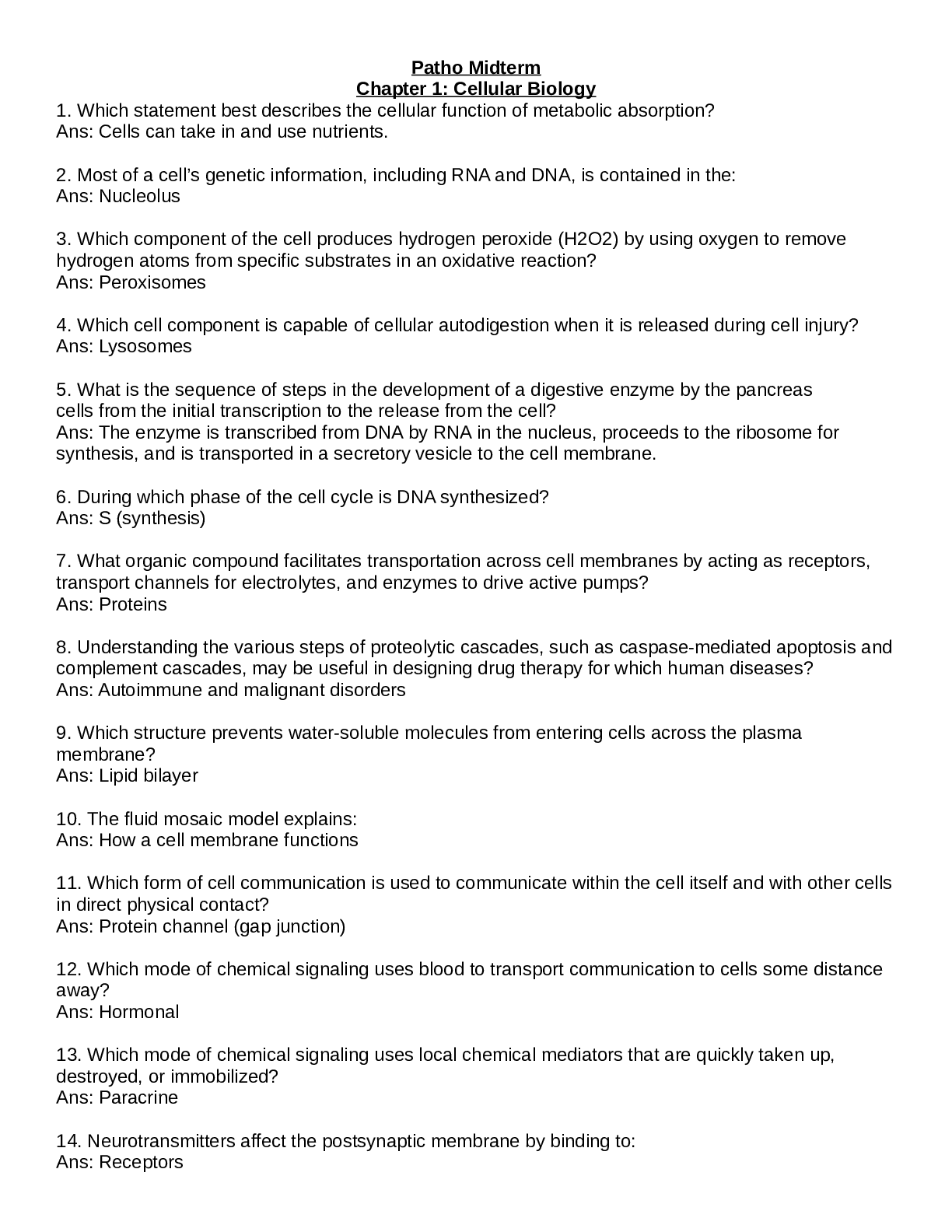*NURSING > EXAM > Latest 100% correct PS154KW-W20- Syllabus-Writing Course-US Government in Comparative Perspective (M (All)
Latest 100% correct PS154KW-W20- Syllabus-Writing Course-US Government in Comparative Perspective (MSTB 226-2-3.20) .docClass Informatio
Document Content and Description Below
Latest 100% correct PS154KW-W20- Syllabus-Writing Course-US Government in Comparative Perspective (MSTB 226-2-3.20) .docClass Information Instructor Information Bernard GROFMAN Email: bgrofman@... uci.edu Phone: (949) 824-5143 (but I will only be answering this phone during my office hours) DO NOT LEAVE MESSAGES ON THAT PHONE. USE E-MAIL INSTEAD! When you do put send me messages PS154 as the first part of the heading so that I will know it is course related. While I am happy to meet students, if you have questions or problems, before you contact me please try to ask the TA for help first. Office Location: Social Sciences Plaza B, Rm 5291 Office Hours: Tuesday, Thursday 3.45-4.50 and by (e-mail) appointment TA Information: Alexandra Marr; [email protected] Thursdays 12:30-1:30 in SST 363 or by (e-mail) appointment. Samuel Morgan [email protected] Wednesdays 11:00-12:00 in SST 663 and by appointment (e-mail). Course Overview This course provides an introduction to the United States in comparative perspective as a means to develop student writing skills. The goal is to improve ability to synthesize information and research in drafting research papers and presentations and for other types of writing, such as executive summaries. Skills needed for writing researchpapers and making presentations, such as outlining, spelling and grammar check tools in WORD, bibliographic search and using library and on-line resources for research purposes, structuring and formatting papers, and use of PowerPoint for presentations will be emphasized. I will also work with students on vocabulary building and in reviewing grammatical rules. I will also discuss literary devices that are common in writing intended to persuade, such as similes, analogies, allusions, and synechdoches, as well as presentational devices such as alliteration, so as to help students effectively add such devices to their rhetorical repertoire. And I will identify rhetorical tricks often used in persuasive writing but that are to be avoided in academic writing, such as ad hominem attacks, appeals to emotion, and hyperbole, as well as discuss the fundamentals of syllogistic logic. In addition I will discuss how to write essays that make use of numerical information (e.g., creating summary tables and figures).1 REQUIRED READING Paul Quirk (ed.), The U.S. and Canada, Oxford University Press, 2019 (available for purchase at the bookstore; but suggested instead for purchase on Amazon Kindle) will serve as the main textbook, and will be read in its entirety. It primarily will be used for writing assignments that require you to carefully read and clearly summarize/outline various chapters in it, and the instructor will also draw on it for lecture material. Read chapters as assigned. SUGGESTED READING Taylor, Shugart, Lijphart and Grofman, A Different Democracy: U.S. Government in Comparative Perspective: Yale, 2014 (abbreviated TSLG) is suggested but not required additional reading . Some of my lecture material will be drawn from this book, and it provides a general reference for how both the U.S. and Canada and your assigned country compare to other nations vis-à-vis institutional 1 For this purpose, material from Jane E. Miller, The Chicago Guide to Writing about Numbers. University of Chicago Press, 2004 will be discussed by the instructor.features. It available for purchase at the bookstore; but suggested instead for purchase on Amazon Kindle. Dahl, Robert. How Democratic is the U.S. Constitution? Yale University Press, 2001 is suggested but not required additional reading. It available for purchase at the bookstore; suggested instead for purchase on Amazon Kindle. READING ASSIGNMENTS FROM QUIRK week QUIRK 1 1 2 2, 9 3 11 4 3 5 4 6 reread 4 7 6 8 5, 7 9 8, 10 10 12 I will often lecture using PowerPoints to outline the lecture topics, though my oral presentation will add considerable material not in the PowerPoints. Previous week’s PowerPoints will normally be posted to the website within one week from my lecture. THE INSTRUCTOR’S CLASS LECTURE POWERPOINTS AND OTHERLECTURE NOTES SHOULD ALSO BE REGARDED AS REQUIRED (re)READING. Substantive content of the course The organization of the substantive component of the course is in terms of three aspects of national differences: values, institutions and public policies (the VIP principle). I also sometimes present results in terms of the VIIIP principle, with the extra I’s being “ideas” and “interests. After the week 1 general introduction, weeks 2-3 focus on values; weeks 4-7 on institutions, and weeks 8-9 on policies, with week 10 providing an overview and wrap-up. As noted above, Quirk is the textbook . A central focus of the chapters in Quirk is on similarities and differences between the U.S. and Canada. Week 1 we focus on how to make comparisons and on the concept of exceptionalism. Week 2 we deal with political culture and values. Week 3 we look at issues of race, citizenship and immigration. Week 4 we look at elections, Week 5 we will identify some basic features of institutional design, and provide some overview data about general features of institutions in the United States and other countries, and look specifically at how executives are organized. Week 6 we look in more detail at constitutional choices, and discuss legislative structure. Week 7 we consider the basic structure of governments, with a comparison of federal and unitary systems. Week 8 begins our discussion of policy choice. We will pay particular attention to the interrelated “puzzles” of U.S. exceptionalism with respect to low proportion of GDP collected in taxes by government and low share of government spending devoted to social welfare. Week 9 looks at specific policy arenas, with a focus on environment and health. Week 10 will deal with patterns of institutional choices that allow us to categorize countries into different types, focusing on the two-dimensional typology offered by Lijphart (1999) and attempts to modify or replace that typology, and we also look at issues in international politics such as the notion of the U.S. as an empire, and America’s changing place in the world economy.HOMEWORKS and IN-CLASS EXERCISES Each student is assigned one country from the list of 30 whose institutions and policies are covered in TSLG and comparisons between that country, the U.S. and Canada, will be the basis of near weekly assignments. You must pick one country from the three options given and inform the TAs and the instructor by e-mail which country you have chosen by the end of the first week. The number you use is the 2nd digit of your student ID. 0 Australia, Austria, Belgium 1 Columbia, Denmark, France 2 Finland, Germany, Switzerland 3. Greece, India, Israel 4. Italy, Japan, Netherlands 5. Portugal, Spain, Sweden 6. Switzerland, UK, Argentina 7. Brazil, Chile, Czech Republic 8. Hungary, Mexico, Poland 9. South Africa, South Korea, UK In addition to (near weekly) assignments from Quirk in which you will be required to outline the material in a chapter in that volume, additional homework assignments may be based on sources such as the Federalist Papers, presidential speeches, and essays and op-eds from sources such as the Washington Post and the Wall Street Journal, or Politico and the Daily Signal, dealing with contemporary political issues from different ideological points of view. Readings will be used to create writing assignments that emphasize and develop particular writing skills. (Co-authoring is increasingly common in the social sciences and it is a useful skill to be familiar with both in terms of its advantages and disadvantages, and I may assign one writing assignment as a team project.)There will be four main types of writing assignments in this class. (1) short assignments asking you identify features of your country and to compare those to the U.S. and Canada. Later in the course these assignments may also contain a second portion requiring a short essay addressing the question of whether value or institutional differences among the countries might explain other differences (e.g., in policy outcomes) between your country and the other two. I provide below an illustrative example of such a writing assignment. Illustrative Short Answer and Short Essay Writing Assignment Party Competition PART I 1. What are the major political parties in your country’s last election? 2. Which of these parties is in the governing coalition in your country? 3 Is there a “populist” (anti-immigrant, anti-foreigner, or anti-EU) party in your country? If so, what has been the trajectory of its vote support over the last few elections? 4. More generally, in no more than a paragraph or two, explain how the party system in your country has changed over the entire Post-WWII period or, for new democracies, in the period since democratization . PART II 5. Write a short essay (2-4 paragraphs) in which you compare the results for your country for questions 3 and 4 with what you have learned about the U.S. and Canada and answer the question of why you think that these cross-country differences occur. In particular, would you say that the reasons for the differences you find stem primarily from a difference in values, or differences in institutions, or something else, such as a difference in political history? This essay can be as few as two or three paragraphs, but it can also be longer. [Show More]
Last updated: 1 year ago
Preview 1 out of 12 pages
Instant download
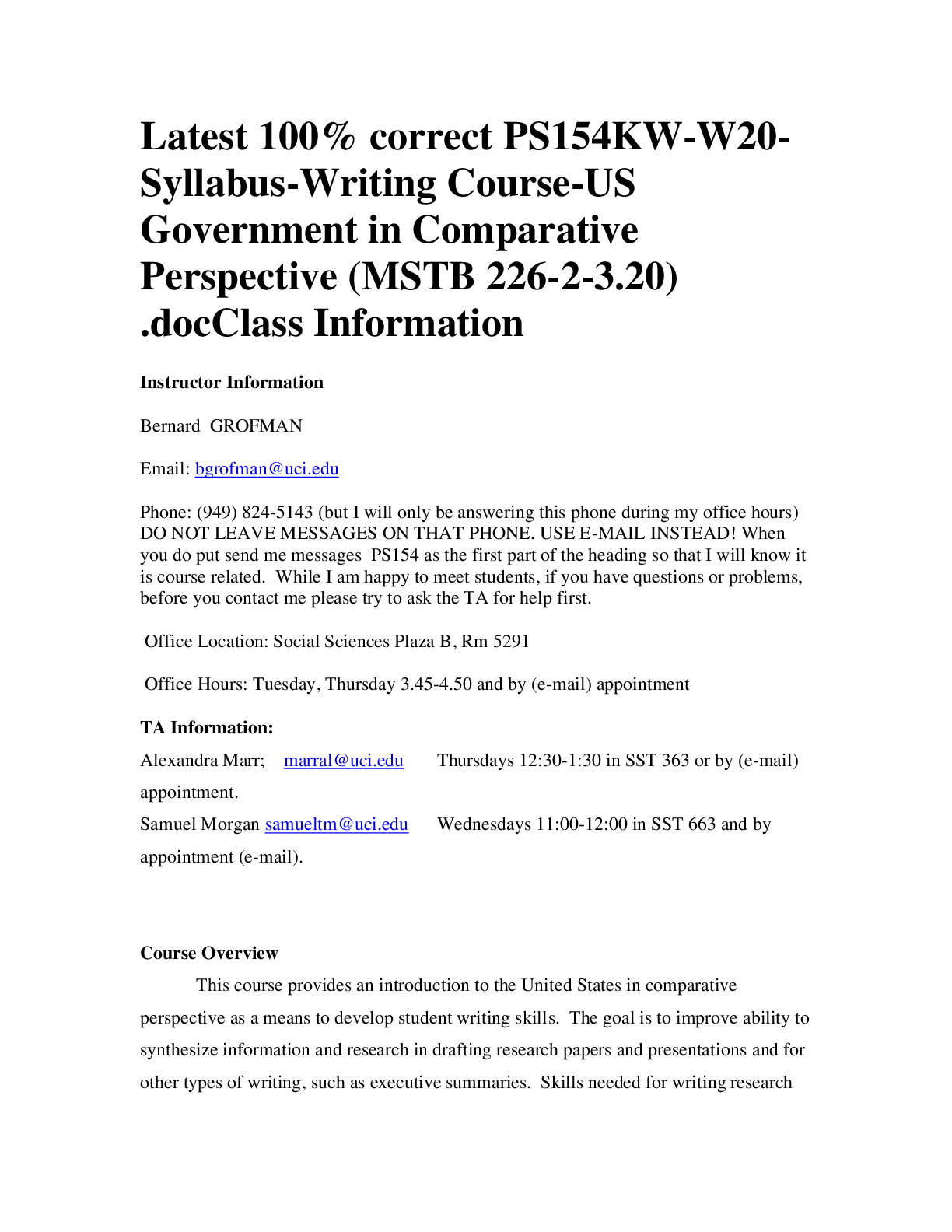
Buy this document to get the full access instantly
Instant Download Access after purchase
Add to cartInstant download
Reviews( 0 )
Document information
Connected school, study & course
About the document
Uploaded On
Feb 17, 2021
Number of pages
12
Written in
Additional information
This document has been written for:
Uploaded
Feb 17, 2021
Downloads
0
Views
49

